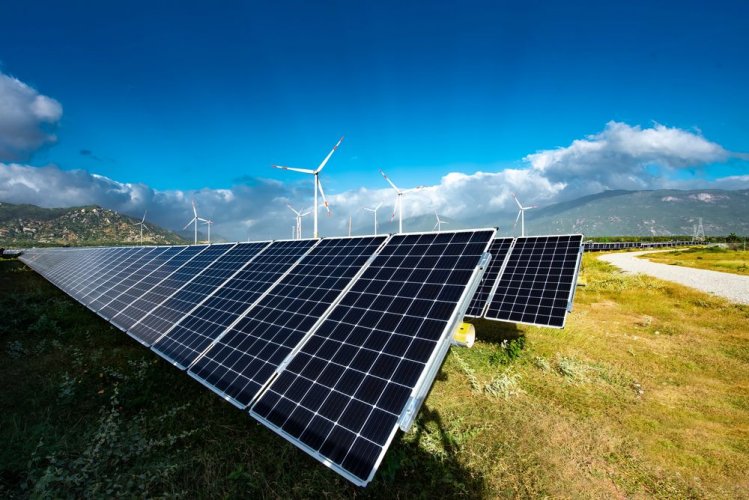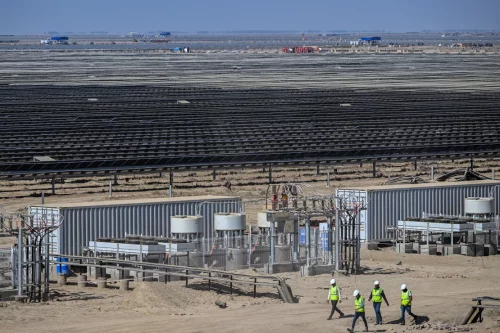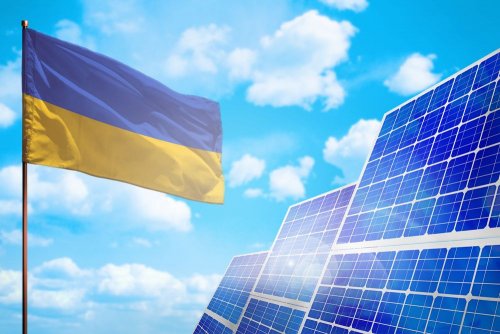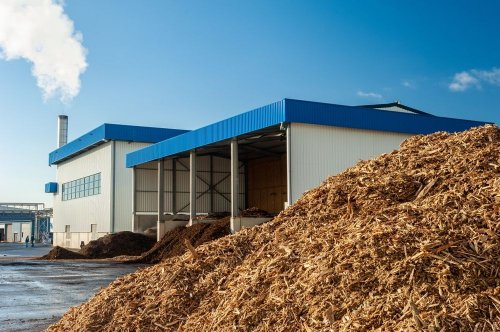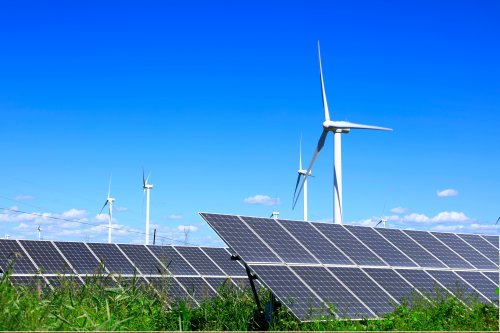The German government has developed a three-stage plan to increase the production capacity of green energy and electric networks in the country and in Europe.
Among other things, the government plans to buy shares in renewable energy companies and stimulate local production of wind turbines and solar panels, EURACTIV reports.
It is noted that own production green capacities have become a priority for the country against the background of the Russian-Ukrainian war and the energy crisis. To develop the plan, Germany held public consultations from April 2022 to February 2023.
The Minister of Economy and Climate Protection, Robert Habek, said that the plan includes:
- I will help companies to invest in and support the operation of renewable energy production facilities.
He noted that Germany wants to define additional instruments, including a special electricity tariff for industry. As well as the support of operating expenses, which are currently contrary to EU regulations. For example, China offers industry cheap electricity tariffs of €0.07 per kilowatt-hour.
The government also plans to create a "transformation fund" through which it will try to buy shares of companies working with renewable energy. It should promote investment, not permanent state involvement.
- Temporarily reducing the risks of expanding the onshore wind and electricity grid.
The material said that the owner of a wind power plant, who cannot sell his electricity due to a lag in network capacity, can receive compensation, for example, with the help of a new tool.
Khabek emphasized that these are funds that should not be received.
- A new round of EU-approved innovative financing schemes called Important Projects of Common European Interest (IPCEI) and their extension to solar energy.
It is noted that on this point, Berlin will seek the support of Spain, which originally proposed the idea.
The story emphasized that the government will also conduct research into rebuilding the solar energy value chain in Germany, where currently only the primary product, polysilicon, is produced on German soil in any significant quantity. China's announcement of possible export restrictions on photovoltaic solar cells only strengthened the industry's arguments.
"Germany wants to triple the share of photovoltaic sources of electricity from the current level of about 10% to about 30% in just ten years," said Jörg Ebel, chairman of the solar industry lobby association BSW.
He also added that Germany should rely on more than just buying solar panels.
It is noted that the cost of implementing the plan is still unknown, but state support for operating costs at scale can be cheap.
The authors emphasized that with the first part of the German plan for the development of the clean technology industry on its territory depends on changes at the EU level. Bound by EU state aid rules, measures such as special support for operating costs would be unthinkable. In order to implement the measures, the European Commission must first create the legal framework necessary in accordance with the EU legislation on state aid.
Habek emphasized that Germany's initiative can complement the industrial plan of the Green Deal.
Earlier, EcoPolitic wrote, that the European Commission presented industrial plan of the Green Deal, which is designed to increase the competitiveness of the European industry with zero emissions and to facilitate the rapid transition to climate neutrality.
As EcoPolitic previously reported, the European Commission plans to soften the rules state aid to support green investments, in particular thanks to tax benefits.

